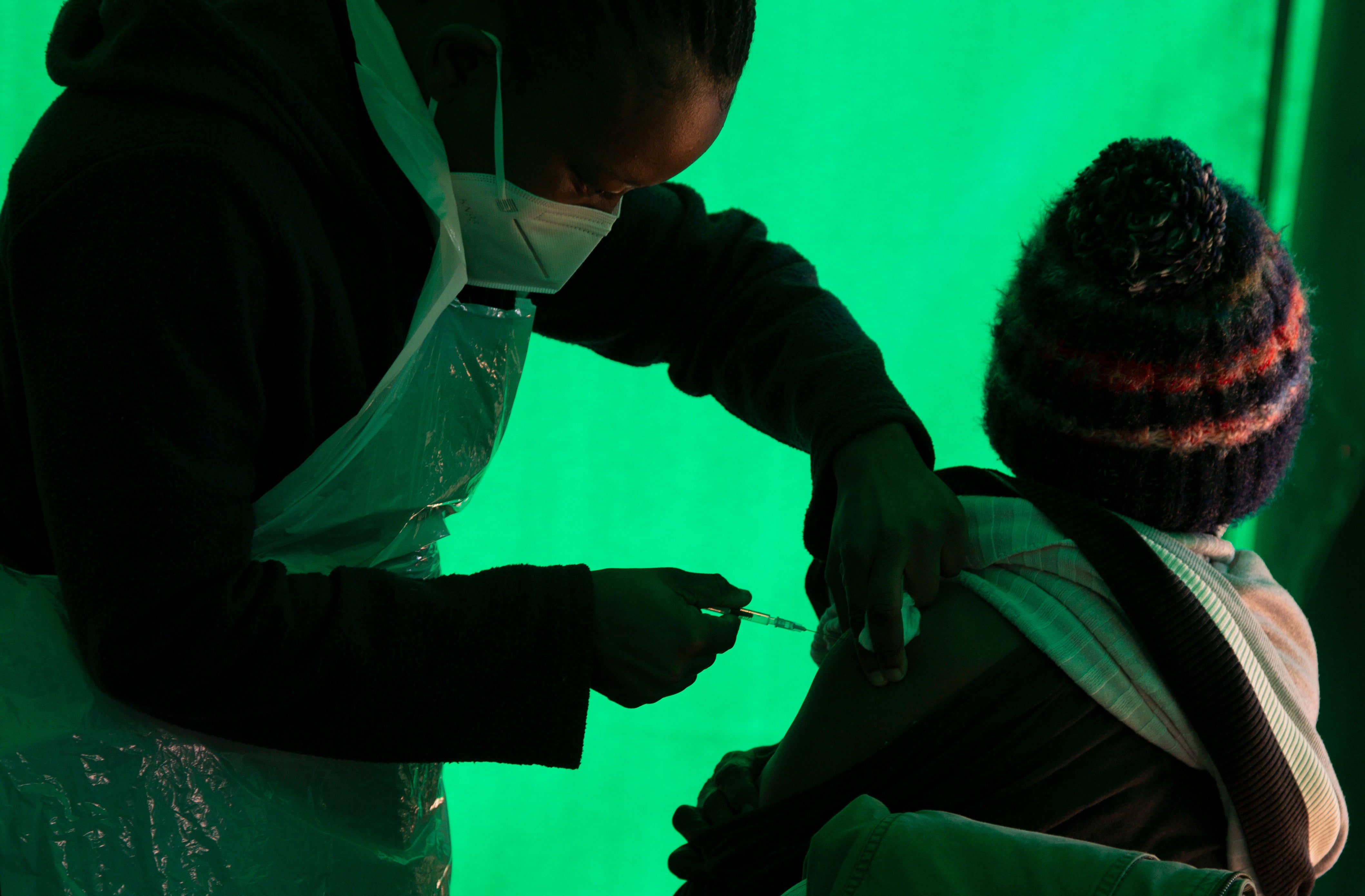South African firm to make Pfizer vaccine, first in Africa
Pfizer says a South African firm will begin producing the Pfizer/BioNTech COVID-19 vaccine

Your support helps us to tell the story
From reproductive rights to climate change to Big Tech, The Independent is on the ground when the story is developing. Whether it's investigating the financials of Elon Musk's pro-Trump PAC or producing our latest documentary, 'The A Word', which shines a light on the American women fighting for reproductive rights, we know how important it is to parse out the facts from the messaging.
At such a critical moment in US history, we need reporters on the ground. Your donation allows us to keep sending journalists to speak to both sides of the story.
The Independent is trusted by Americans across the entire political spectrum. And unlike many other quality news outlets, we choose not to lock Americans out of our reporting and analysis with paywalls. We believe quality journalism should be available to everyone, paid for by those who can afford it.
Your support makes all the difference.A South African firm will begin producing the Pfizer BioNTech COVID-19 vaccine, the first time that the shot will be produced in Africa, Pfizer announced Wednesday.
The Biovac Institute based in Cape Town will manufacture the vaccine for distribution across Africa, in a move that should help address the continent's desperate need for more vaccine doses amid a recent surge of cases.
Biovac will receive large batch ingredients for the vaccine from Europe and will blend the components, put them in vials and package them for distribution. The production will begin in 2022 with a goal of reaching more than 100 million finished doses annually. Biovac's production of doses will be distributed among the 54 countries of Africa.
The development is “a critical step” in increasing African's access to an effective COVID-19 vaccine, Biovac chief executive Dr. Morena Makhoana said.
Pfizer's goal is to provide access to its vaccine to people everywhere, CEO Albert Bourla said. But the vast majority of its vaccine doses have been sold in bilateral deals to rich countries and only a small amount was made available to the U.N.-backed effort to share COVID-19 vaccines fairly.
South Africa is relying upon the Pfizer vaccine in its mass inoculation drive. It has purchased 40 million doses of the Pfizer vaccine which are arriving in weekly deliveries.
The Johnson & Johnson vaccine is already being produced in South Africa. Aspen Pharmacare's factory in Gqeberha, formerly Port Elizabeth, is making the J&J vaccine in the same “fill and finish” process and has the capacity to make more than 200 million doses of the vaccine annually. The J&J vaccines made in South Africa are also being distributed across the African continent.
South Africa's vaccination drive is ramping up, with more than 220,000 people getting shots on weekdays. More than 5.5 million of South Africa's 60 million people have received at least one jab, with more than 1.4 million fully vaccinated, according to official figures Wednesday.
South Africa's goal is to vaccinate about 67% of its population by February 2022.
Vaccination levels are low across Africa, with less than 2% of the continent's population of 1.3 billion having received at least one shot, according to the Africa Centers for Disease Control and Prevention.
The U.N.-backed effort to deliver coronavirus vaccines worldwide known as COVAX has stumbled badly in past months. It has delivered only 200 million vaccines globally since February, while the U.S. alone has administered more than 338 million doses. After COVAX’s biggest supplier — the Serum Institute of India — halted exports in March to deal with an explosive surge on the subcontinent, the agencies behind COVAX, including the World Health Organization, resorted to begging rich countries for donations.
Most of the promised doses won’t arrive until next year and although Group of 20 countries pledged to donate a billion COVID-19 vaccines, that is far short of the 11 billion WHO says are needed to protect the world.
___
Cheng contributed from London.
___
Find more AP coverage at https://apnews.com/hub/coronavirus-pandemic and https://apnews.com/hub/coronavirus-vaccine